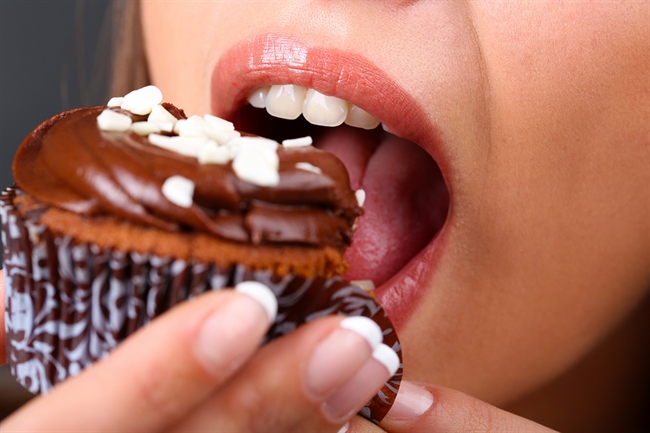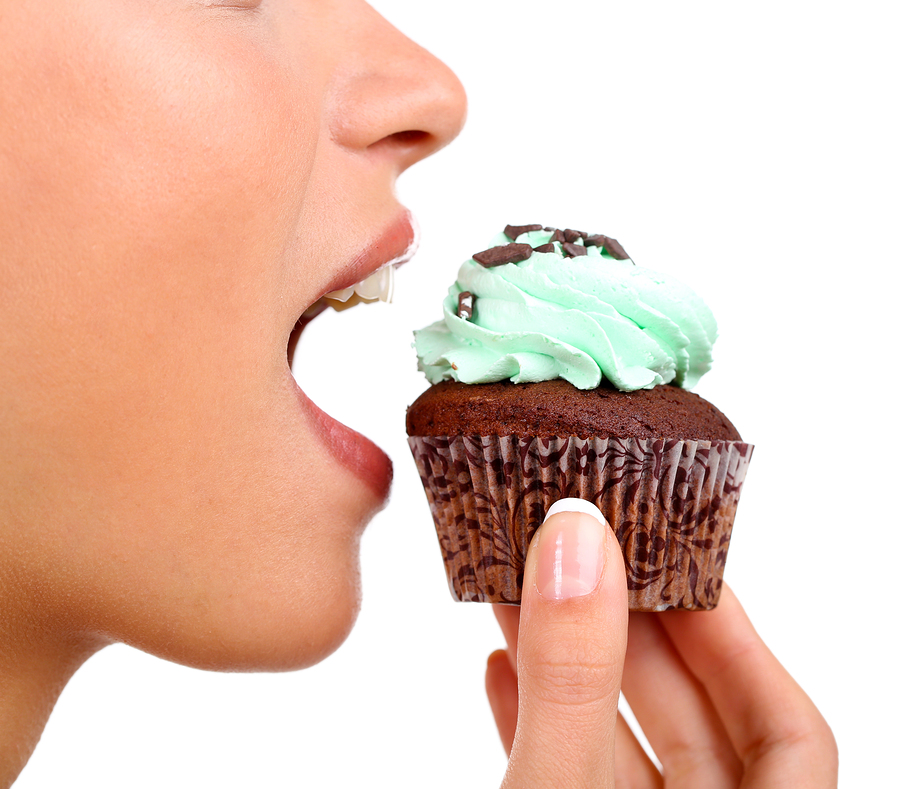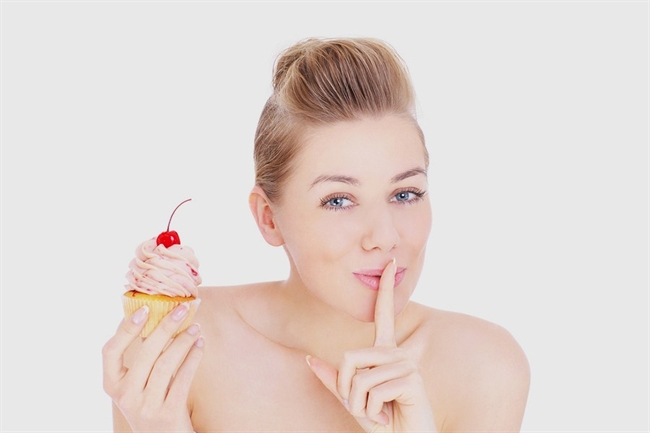Dreaming about doughnuts? Alejandra Ruani, weight loss coach and director at The Health Sciences Academy, gives us eight tell-tale signs you are addicted to food.
I learned how to count calories when I was 11 years old. But that didn’t seem to stop me from polishing off a pack of chocolate coins back then. Or that big birthday cake followed by a pint of ice cream that nearly sent me to hospital. My sister told me that I needed to work on my willpower. I guess that’s something I lacked. Even today.
I’ve lost and gained a thousand pounds since then. For the most part of my teenage years, I felt out of control and yet deprived, undeserving of anything good.
I would numb my shame with cookies, pastries and cheese, and the day after punish myself with even more food for not being in control – of anything.

It made me wonder, why don’t other people have this issue? What was wrong with me?
But then, when I ‘came out’ with my secret problem, I realised I wasn’t alone. What shocked me the most is that a great number of normal weight people have this issue too.
In the years since my Pringles incident, I’ve learned how to tame my compulsive food cravings and lost my ‘shame’ weight pretty effortlessly. Now, as a weight loss coach and Director at The Health Sciences Academy, I’ve helped hundreds of women with their food addiction.
Here are eight signs that I want to share with you to help you find out if you’re an undiagnosed food addict. If this is you, a Soulmate cleanse will most likely backfire:
1. You can’t stop eating despite a full stomach
I can’t tell you how many times I ate ten KitKats in a row after a humongous dinner. You’re full but don’t feel filled. You aren’t hungry but have this uncomfortable, intense craving. Like an emergency, the world stops unless you can have it.
In other words, ‘fear of missing out’… on food! This is when your brain goes ‘This is my last chance to have it!’ It’s now or never, you think. Because you promise yourself that you won’t eat this ever again, you go for the whole thing. Until the pack is empty.
3. You use food as self-medication
Food becomes your Valium when you use it to numb your negative feelings. That soothing carrot cake soaks up the by-products of stress, leaving you relaxed. Conversely, if you lack positive emotions (say, you feel nothing… you’re bored), you use food to give you a positive ‘high’ – just like recreational drugs! Did you know? Research shows that sugar is four times more addictive than hard drugs.
4. You eat in secret
As far as the world is concerned, you’ve got it together. You know so much about nutrition that you could write a best-seller about it. So you don’t want others to really know what you eat. What if they discover that you’re a mess and completely out of control. So you sneak out to eat whatever you want, by yourself, without the judgement and embarrassment.
5. You blame your bloat on your thyroid or a gluten intolerance
Because the world sees only half (or less) of what you eat, what mysterious event can possibly justify those four pounds you’ve gained this week. ‘I have a sluggish thyroid’ or ‘I think I may be Coeliac,’ you tell others. So often that you end up believing it!
6. You cancel social activities and stay home to eat
I used to tell myself, ‘When I’m 20 pounds thinner, I’ll be more adventurous, go to parties and have more friends’. But the reality is that, when it came to choosing socialising versus eating food, the latter would win. Is food your best friend?
7. You need more to feel the same effect
One day, you started by having just one piece of Weight Watchers cake, or just one bar of chocolate. But today, one portion won’t do the trick. To feel the same effect, you now have one after the other. Just like someone with a substance dependence. Somewhere along the line, you became desensitised and ended up increasing your dose!

The day after a binge, you wake up bloated, with a skin rash, or fearful to look in the mirror. So you decide to cut out. For the millionth time. But, as the day continues, you begin craving the same foods. You have a decision to make. To be a nutcase for the rest of the day. Or to break your promise and relief the withdrawal symptoms.
Does any of these resonate with you? Before you start thinking ‘I’m a disaster and will never get out of this’, I want you to know that there’s nothing wrong with you. You’ve just gotten a few wires that need to be untangled. Your attachment to full fat ice-cream, biscuits and Maltesers are behaviours that you learned sometime in your life. They are not who you really are. In fact, you can train yourself to un-learn them. If I did it, so can you
In the comments below I really want to know:
What’s your biggest struggle when it comes to eating?
What’s your number one ‘forbidden’ food (i.e. the one you can’t stop buying)?
Alejandra Ruani is a Director at The Health Sciences Academy and the Lead Instructor of their Clinical Weight Loss Certification, an online training course that breaks down the science and psychology of weight management into simple, actionable steps, showing you exactly what works so you can start doing it yourself. For fresh ideas on how to live a healthy life, join their FREE Starter Nutrition Course
Like this article? Sign up to our newsletter to get more articles like this delivered straight to your inbox.






















































